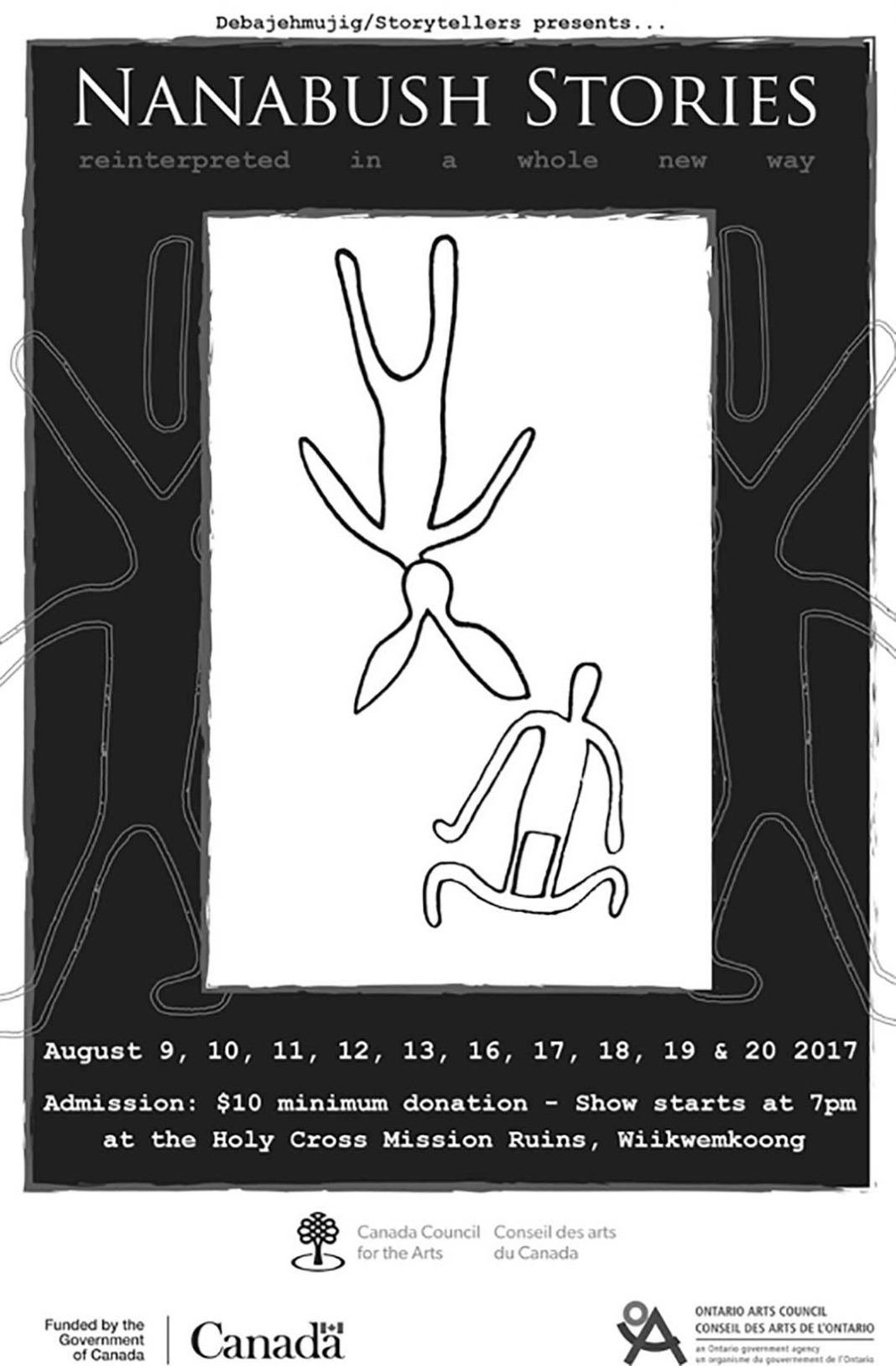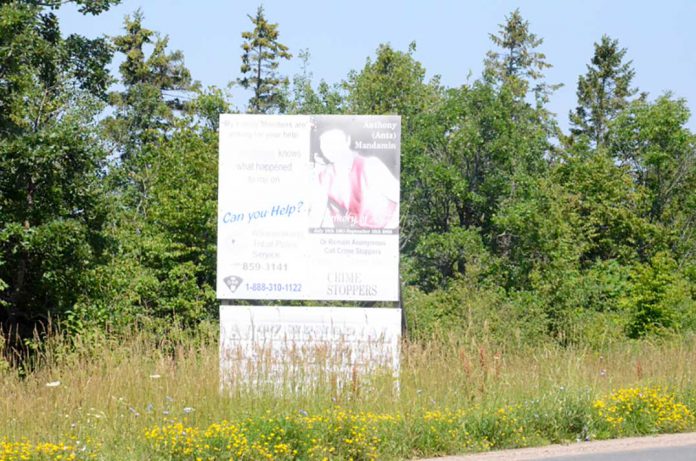WIIKWEMKOONG—Debajehmujig Storytellers Artistic Director Joe Osawabine has been suffering for his art these past two weeks, a side effect of bringing the Nanabush stories back to the mainstage this summer.
“They say you shouldn’t tell Nanaboozhoo stories in the summer time because you will attract the attention of the Trickster,” he admitted ruefully. “It’s definitely been a couple of those weeks. I am just taking it as an opportunity for long term growth,” he laughed. Anishinaabe tradition holds that you should avoid telling Nanabush stories when the coverlet of snow has left the ground because once his blanket is gone and the Trickster is up and about and invoking his attention it is not always in one’s best interests.
Despite the challenge of having the Anishinaabe jokester hopping about the place, things have been going remarkably smoothly and the production is well on track to take to the Holy Cross Mission ruins stage this August 9 through 20. Perhaps the Trickster’s famous vanity is staying his hand a bit. In any case, this production is taking him back to his roots.
“We are going back to Nanabush,” said Mr. Osawabine. “Much like we did with ‘Lupi the Great White Wolf’ last year, we are revisiting the story through the lens of where we have developed into our role as contemporary storytellers.”
The company has taken the base provided by Esther Odjig-Beaven’s ‘Ever That Nanabush’ and expanded the stories from the series included in that work to include a number of stories gleaned from an elder who related the stories to a university researcher back in 1912.
“It was the same university as in ‘Sunlight Woman,’ but a different person,” said Mr. Osawabine. “The elder was about 80-years-old at the time he related the stories. These are the same stories that he would have learned as a child, so they stretch well back into the 1800s.”
The stories, originally part of an oral tradition stretching back literally thousands of years, will be very close to those that imparted life lessons to the Anishinaabe before contact. But the source material presents its own considerable challenges.
“The original translation was very literal,” said Mr. Osawabine. “So there are the verilys and the thees and thous to deal with, but also a lot of repetition, where they might say ‘and then he was told by his father, as his father told it to him’.” So the company had to translate the translation as it were, in order to bring the stories to a modern audience. “We had to if we were going to keep the audience’s attention,” he said. While the repetitive cadence and syntax would have assisted with the mnemonics of an oral tradition, the literal translation would have lost the rhythm and cues of the original.
That being said, Debajehmujig Storytellers is incorporating a good portion of Anishinaabemowin into the production.
The six mainstage actors who will be interpreting the Stories of Nanabush will include both Debajehmujig veterans such as Mr. Osawabine (who has portrayed Nanaboozhoo a number of times onstage) and Bruce Noakwegijig as well as a number of the company’s new actors.
“We have a number of new actors that will be onstage,” said Mr. Osawabine. “We will be passing on the stories as they were passed onto us, creating a whole new generation of storytellers to carry on the traditions.”
Many of the stories and traditions that Debajehmujig have acquired over the years came from the late Odawa elder and traditionalist Eddie King who acted as elder in residence for Debajehmujig for many years.
The stories of Nanabush trace back through the centuries to the time when animism was central to the lifestyle of the Indigenous peoples, in whose territories the nation of Canada shares.
The figure of Nanabush features in the petroglyphs engraved in rocks across Turtle Island, particularly evident in Peterborough. “When you see a figure of a man with rabbit ears, that’s Nanaboozhoo,” said Mr. Osawabine. “He was also known as Waynaboozhoo, the rabbit.”
He went on to note that you can find Nanaboozhoo in the traditional greeting of the Anishinaabe. “When we say boozhoo, we have dropped the ‘wayna’ part and shortened to boozhoo honouring him.”
‘Nanabush Stories: interpreted in a whole new way’ is being performed at 7 pm on August 9, 10, 11, 12, 13 in the first run and again from August 16, 17, 18, 19 and 20. All performances will be at the Holy Cross Mission ruins in Wiikwemkoong with a $10 minimum suggested donation.





